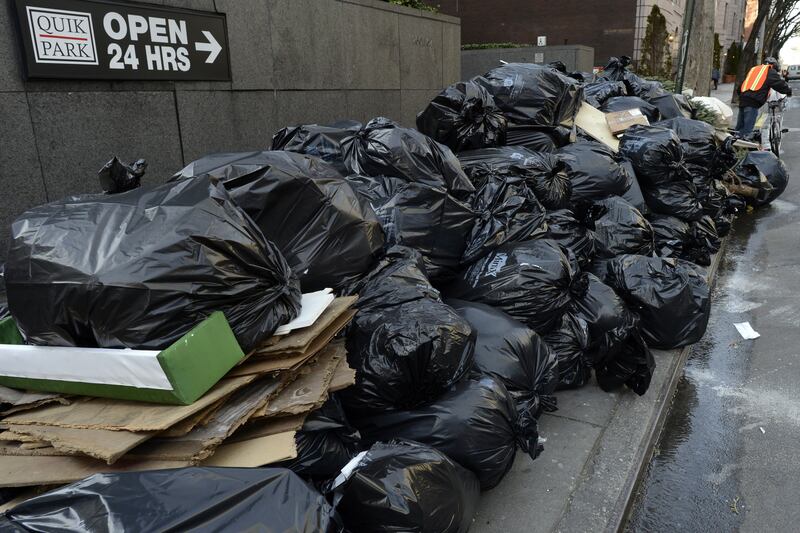Mayor Michael Bloomberg’s latest plan for the Big Apple is landing with a splatter in the lap of New York’s landlords and superintendents.

Fresh off his fight to limit the size of soft drinks and introducing bike sharing, Bloomberg is taking aim at dinner plates, requiring New Yorkers to separate their food waste from their regular trash for composting. Residents will be asked to save chicken bones, rotting fruit, and stale bread in special containers in their homes, which they’ll have to deposit in larger curbside bins that will be emptied weekly by sanitation trucks.
But that leaves a lot of dirty work to building superintendents, who say they’ll face the extra burden of enforcing the city’s rules and keeping the buildings free of unwanted critters lured by the smell.
“It’s a messy kind of idea,” says Michael Ryan, superintendent of 300 West 23rd Street. “I can’t have food waste left in the hallways—we already have enough issues with keeping bugs away.”
In his building, Ryan says tenants put their trash in chutes on each floor and leave their recyclables in the hallway for workers to pick up. That won’t work with rotting food, which attracts mice, rats, and insects.
Javier Ojdea, a concierge at 303 West 21st Street, agrees that the plan will only increase the city’s vermin problem.
“And have more rats running through the streets? It’s ridiculous!” he says.
Yet bugs aren’t the biggest problem. It’s asking increasingly upscale New Yorkers to trek their rancid leftovers and other unsavories out to curbside bins that may be too tall of an order. “Just getting residents to bring it downstairs would be nearly impossible,” says Ryan.
Why now for this composting initiative, with Bloomberg leaving office at year’s end? A voluntary pilot initiative on Staten Island, which included 3,500 single-family homes, was met with an unexpectedly high participation rate of 43 percent, according to Bloomberg’s office. A citywide program would also be voluntary, but officials say they hope to mandate it by 2016. Residents would face a fine if they didn’t separate their food waste, much like today’s penalties for refusing to recycle plastic, paper, and metal. Cities like San Francisco and Seattle have successfully implemented citywide composting.
Charles Starner, the head of a co-op at 303 West 23rd Street, says he thinks residents won’t participate in the program unless forced.
“People won’t do it unless it’s convenient for them or they have to. It just won’t happen,” he says.
Still, the city anticipates high participation rates for the program. Officials will soon announce plans to hire composting plants to deal with the increase in food scraps, which are expected to top 100,000 tons per year.
The Bloomberg administration is also seeking proposals for a company to build a plant in the New York area to convert the food waste into natural gases and fertilizer, which could be used to generate electricity. This process will also be cheaper for the city than sending the annual 1.2 million tons of scraps to a landfill at $80 per ton.
Oliver Simons, the super at 520 West 23rd Street, says the greater good of the program will be enough to get New Yorkers to participate.
“Anything Bloomberg does has to be good for the city,” he says.
Simons says he’s been somewhat successful in getting his tenants to recycle and believes he can implement the food compost program in a similar way. At his building, the staff is forced to do more work when tenants fail to recycle and have also suffered minor injuries from handling items like clothes hangers and bottles that have been stuffed down the trash chute. Simply asking tenants to be considerate of the staff has helped increase their tendency to recycle. He hopes that the staff and tenants can come to an agreement when it’s time to start recycling food waste, too.
“It’s all about teaching people,” he says. “Some people will listen, and some people won’t.”






